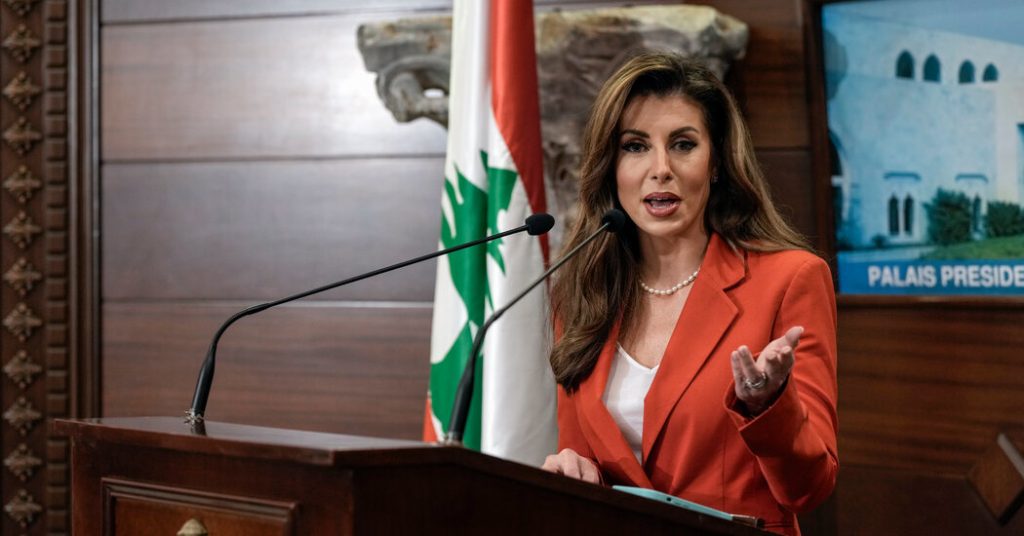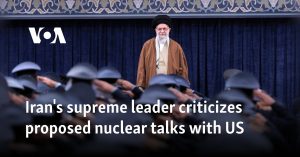A Trump administration envoy to the Middle East pressed Lebanon’s new leaders on Friday to ensure that Hezbollah does not become part of the government, as it grapples with a fragile cease-fire and violence that could undermine its push for stability.
The United States deputy envoy to the Middle East, Morgan Ortagus, said at a news conference in Beirut after meeting Lebanon’s new president, Joseph Aoun, that Hezbollah had been “defeated” by Israel.
She added that the leadership of Lebanon was committed to ensuring that Hezbollah, a powerful Iran-backed militia, “is not a part of this government in any form.”
There was no immediate comment from Lebanese officials on her account. Lebanon’s new leaders will need to strike a balance with Hezbollah, which has long been the country’s dominant political force but has been battered by a 14-month war with Israel.
Washington has increased its pressure on Lebanon’s new leadership to try to undermine the group’s political stranglehold on the country.
Ms. Ortagus, a former State Department spokeswoman and the first senior U.S. official to visit Lebanon since Mr. Trump took office, also said that the Trump administration was placing pressure on Iran to stop funding its proxies in the Middle East, including Hezbollah.
Her remarks came after she met with Mr. Aoun, whose election by Lebanese lawmakers last month ended years of political gridlock.
Mr. Aoun has appointed a new prime minister, Nawaf Salam, but the new leadership has so far not formed a government. Senior government posts in Lebanon have traditionally been divided up among the country’s sectarian communities under a decades-old power sharing agreement.
The diplomatic pressure comes at a delicate time for Lebanon.
Under the terms of a 60-day cease-fire that ended the war between Israel and Hezbollah in November, Israeli troops were supposed to have withdrawn by now from Lebanon.
But they have not done so, and Israeli forces killed two dozen people, according to Lebanese officials, as thousands of people attempted to return to their homes near the border when the cease-fire expired last month. The Israeli military said that it had fired “warning shots in order to eliminate threats”
With the truce deal now extended until Feb. 18, many in Lebanon now fear the prospect of a sustained Israeli occupation of the country’s south.
With the deadline for the new cease-fire approaching, the Israeli military carried out a series of airstrikes overnight deep inside Lebanese territory.
The military said it had targeted Hezbollah military sites, and it accused the group of violating the terms of the cease-fire agreement. Both sides have repeatedly accused one another of violating the deal.
Lebanon’s state-run news agency reported attacks in southern and eastern Lebanon, which appeared to be some of the most intense since the war ended in November. There were no immediate reports of casualties.
Fighting also continued on Friday along the Lebanese-Syrian border, where skirmishes erupted a day earlier between Syrian forces and armed gunmen in Lebanon. Syria’s new rebel authorities said they were attempting to clamp down on cross-border smuggling networks, according to Syria’s state news agency, SANA.








